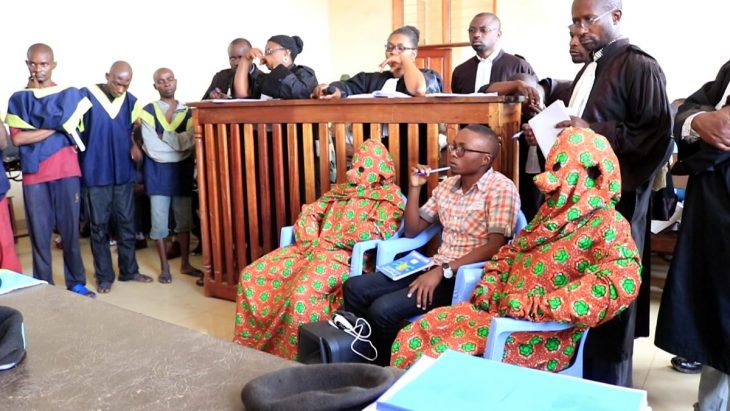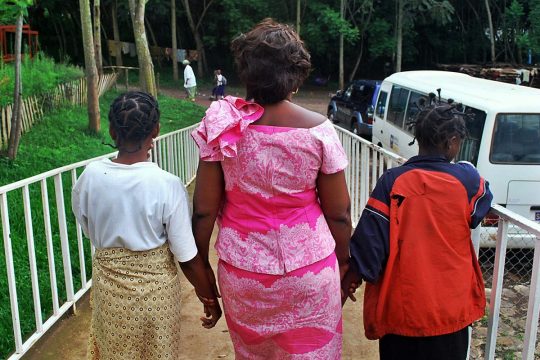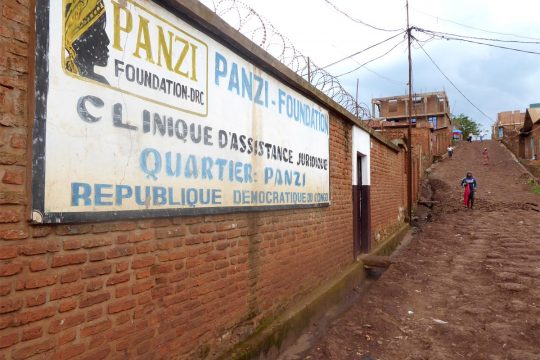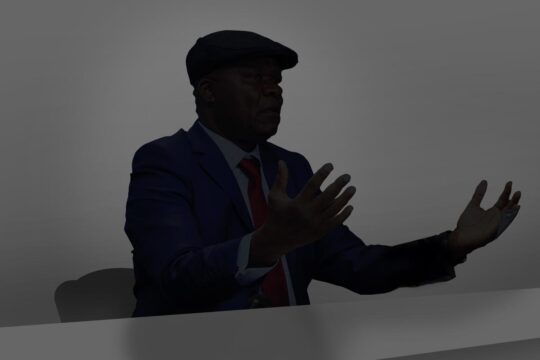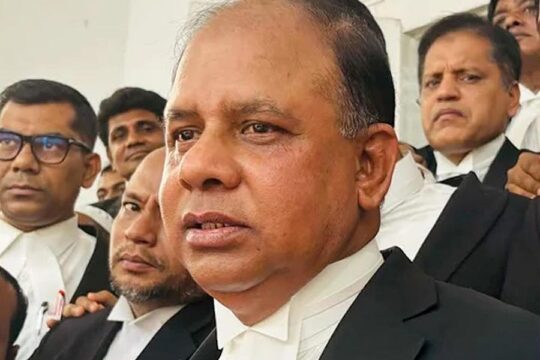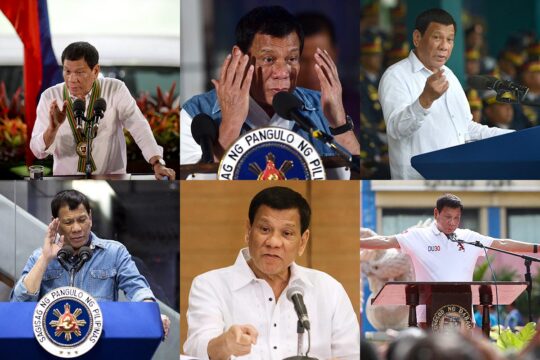It is Wednesday, October 23, 2019 at the Military Justice Palace in Bukavu. Out of the dozen or so files on the roll, only one seems to galvanize everyone, from lawyers to delegates from human rights organizations, journalists and law students. Dozens of them flock to the courtroom at 9 a.m. to follow the trial in this city in eastern Democratic Republic of Congo (DRC). Case 1448/019 concerns militia leader Fréderic Masudi Alimasi, known as "Koko di Koko", and four of his associates. They are being prosecuted for rape, murder, torture, sexual slavery, deprivation of liberty, looting and destruction of property, acts that may constitute crimes against humanity. These crimes were committed by the Raia Mutomboki militia between February and August 2018 in the territories of Shabunda and Mwenga. About 350 victims are registered, according to the NGO TRIAL International, of whom more than 190 are victims of sexual violence.
"I was expecting monsters"
At 11 a.m., when the court police summon the five defendants, the audience is agitated. Everyone wants to see "Koko di Koko". But ten minutes later, when the president of the court, Major Kabila Kangoyi, calls the defendants by name, the public is disappointed. "It was these simple men who terrorized Shabunda and Mwenga? No way! I was expecting monsters," says Egide Abalawi, a journalist in Bukavu. "Our government should not be sabotaged by people of this kind," says Christopher, a law student, who is equally surprised.
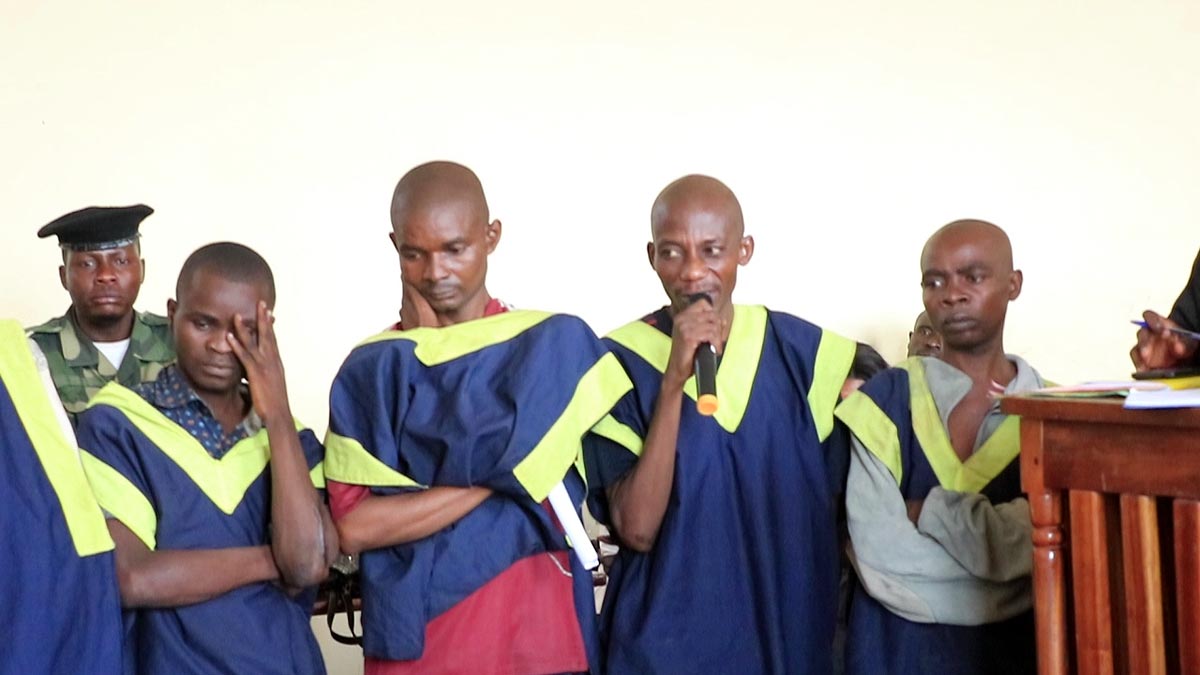
The "monster" facing the spectators is rather a thin man with big eyes, who appears relaxed in his dark blue prisoner's shirt, lined with yellow. After about a month of mobile court hearings in Shabunda and Mwenga, as close as possible to the victims, the military court has returned to Bukavu for the final phase of this case. The hearing on 23 October is devoted to hearing the last victims.
The ordeal of women in Shabunda and Mwenga
Like the 60 or so victims who have appeared before the judges in Kitutu and Kigulube, rural South Kivu, the last two describe in turn the atrocious acts they say they have suffered at the hands of Raia Mutomboki, Koko di Koko's militia. "They found me walking, as they were already dragging other captives," says the first, who was 15 at the time and appears under the code name BK/23/A. "We spent two weeks in the bush, abused all day long by any torturer who wanted us. Koko di Koko, being the leader, slept with me before handing me on to his subordinate. Women were distributed like objects. It was terrible being with them, because we were also forced to flee from one moment to the next when they heard of approaching soldiers. One day, they destroyed bridges and forced us to cross a deep river on a rope. If you lose your balance, you fall in, and the river becomes your grave.”
The woman who calls herself Rebecca, to preserve her anonymity, has become a heroine. A day after she appeared in court, JusticeInfo met her in Panzi, the hospital created by Nobel Peace Prize winner Denis Mukwege. For the past week, she has been receiving medical and psychosocial care. Rebecca was only 16 when Koko di Koko and his gang took her from her husband, just a week after their marriage, to turn her into a sex slave, she says. Her ordeal lasted nine months. "February 8, 2018, was a sad day that I cannot forget as long as I live,” she says. “They came to attack our village of Kabikokole. Everyone tried to get out as best they could. Unfortunately, I and three other women were unable to escape. They took us hostage and made us sex slaves. Koko di Koko slept with each of us, before handing us back to his lieutenants. Raping me was done as punishment. When they finally took me by force, he [Koko di Koko] came, looked me in the eye with mockery and told me that he did this to punish me for not having agreed to have sex with him when he was still living in Kigulube as a policeman."
Victims in need of care
According to Panzi, 214 victims of sexual violence have become civil parties. John Leki, a psychologist at Panzi, has met all of them. He recalls all the victims, women and men: "These militiamen used machetes to strike their victims. In Kigulube, some of them have their faces paralyzed. Others have their hands cut off, their testicles crushed. There are men who are so troubled after being forced to sleep with their sisters, sisters-in-law and mothers-in-law that they are in need of care.”
By the end of October, only two victims had gone to Panzi for treatment. John Leki fears for the health of more than 200 others who remain scattered without care in the villages of Shabunda and Mwenga. "These are villages that have no hospitals or health centres,” he says. “However, for rape victims it is recommended that they go to health facilities within 72 hours of the incident. Our management is considering bringing them to Panzi, but I am already concerned that many victims may be suffering from sexually transmitted diseases, such as HIV-AIDS."
Threats and insecurity
Not all victims took the risk of testifying in court. According to Charles Cikura, coordinator of the civil parties' lawyers' collective, many of them were prevented from testifying. "In Kigulube, where we have been, some were prevented by a certain Bozi, who was the second in command of the brigade Koko di Koko was commanding," he said. "He sent people to witnesses who were to testify in court and threatened to kill them. Many victims hesitated, others testified incognito."
John Leki concurs: "In Kigulube, lost in the middle of the forest, almost everyone is a victim of Koko di Koko because it’s where his militia established their headquarters. Many were afraid to come forward to testify. After the excitement on the first day of the hearing, the courtroom gradually emptied when some residents began to receive mobile messages from Raia Mutomboki militiamen, threatening to kidnap them on their return from court if they dared to testify against their former leader. The mobile court hearings took place in a climate of fear and insecurity.”
Fréderic Masudi Alimasi, alias Koko di Koko, commanded one of the 18 brigades of the Raia Mutomboki group of a man named "Donat". As a brigade commander, he would have had control over only about 10 fighters, which Rebecca confirmed.
"Out of nearly 10 people, only five have been arrested,” says Josaphat Musamba Bussy, a researcher with the South Kivu Conflict and Human Security Studies Group. “Where are the others? Free! Certainly, the brigade commanded by Koko di Koko has probably disappeared, but this does not affect in any way Raia Mutomboki's influence on Shabunda and Mwenga. They remain the masters in many villages."
Witness protection
However, the collective of lawyers representing the civil parties asserts that these manoeuvres by the militia do not in any way affect the work of the courts. "About 60 victims testified. And among the victims who were prevented from doing so, there were some who had already been heard at the pre-court stage. They made statements. We will stick to the minutes that were drawn up at the time. There is no problem, especially since we have seen them and they have mandated us to represent them in court," says Cikura.
The court has opted for special protection measures. Victims and witnesses are identified by code names. Cloth suits, covering the whole body, with animal head hoods, guarantee anonymity, as well as the use of voice distortion devices during hearings. But during some of the victims' testimonies, the defendants were able to remember the events and identify the victims.
On October 25, the lawyers for the civil parties appeared before the military judges to argue how all these acts constitute crimes against humanity. "Mr. President, these defendants before you have carried out systematic and widespread attacks against civilians in Shabunda and Mwenga. This is reflected in the sheer number of people and villages affected. They raped women, tortured men, and violated property rights. These are crimes against humanity," said lawyer Adèle Bisharwa.
"You heard them say that they had decided to conduct a punitive expedition against the people in Kabikokole. So they got together, refined strategies, including the destruction of bridges, to prevent the military from intervening,” his colleague David Bugamba told the court. “Please understand, Mr. President, that these were not isolated acts, but rather coordinated and carried out in full collaboration, each in his own role. All of them are guilty!"
Army and State implicated
Lawyer Bugamba is also coordinator of the Panzi Legal Clinic. He went so far as to incriminate the Congolese state, accusing it of failing in its sovereign duty to protect civilians. "Where was the State when these ten villages were attacked, when our sisters were being raped? At a hearing, you heard an army lieutenant argue that they could not intervene because of lack of personnel. This is a very sad revelation. During the attack on Kabikokole, this village was protected only by one unarmed policeman. Why, Mr. President, this lack of concern for the safety of our fellow citizens?" he asked. "In Kitutu, the village chief's wife told us that the population of Kabikokole, having been informed of the arrival of the militiamen, alerted the soldiers stationed in the nearby village of Lubushwa. But they did nothing to prevent this attack by the militiamen. And when the latter returned from Kabikokole to Wameli, they met, along the way, Congolese loyalist forces who, instead of attacking the militiamen, were rather content to share the spoils of war. You must condemn [the Congolese State] for its negligence and irresponsibility in failing to protect the population.”
Civil parties are asking the court to order the defendants to pay damages ranging from US$5,000 to US$50,000 per victim ($5,000 for victims of looting and other inhuman acts, $20,000 for victims of rape and torture, $30,000 for victims of sexual slavery, $40,000 for forced disappearance, $50,000 for murder). They also ask the court to order the Congolese State to ensure "the medical and psychosocial care of the victims for the required amount of time in the state health facilities closest to the victims". The closing arguments, defence response and verdict are expected by the end of the week.


